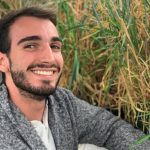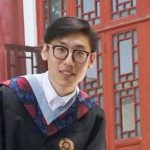Weichao Huang: The Plant Cell First Author

 Weichao Huang, first author of “Chlamydomonas mutants lacking chloroplast TRIOSE PHOSPHATE TRANSPORTER3 are metabolically compromised and light-sensitive”
Weichao Huang, first author of “Chlamydomonas mutants lacking chloroplast TRIOSE PHOSPHATE TRANSPORTER3 are metabolically compromised and light-sensitive”
Current Position: Assistant Professor, Faculty of Synthetic Biology, Shenzhen Institute of Advanced Technology, Shenzhen, China
Education: PhD in Phycology at University of Konstanz, Germany; MSc in Hydrobiology at Institute of Hydrobiology, Chinese Academy of Sciences, China
Non-scientific Interests: traveling, outdoor activities, movies, cooking.
Brief bio:
My research is focused on developing a more informed understanding of central metabolism in microalgae that can be applied to sustainable bioenergy technologies. My research topics range from initial carbon fixation by photosynthesis, through metabolite shuttling between chloroplasts and other subcellular compartments, to downstream bio-production pathways of the high value compounds in eukaryotic microalgae, such as lipids (transformed as biofuels, bioplastics, nutrient supplements), starch (transformed as novel food, bioethanol, bioplastics), β -1,3- glucan (transformed as immune supplements, functional foods, and beverages).
I am especially fascinated by the complicated metabolite trafficking network between different subcellular compartments, and how the network helps microalgae acclimate to the changing environments. As a postdoc with the support from Prof. Arthur Grossman, at Plant Biology Department, Carnegie Institution for Science, I initiated and worked on the analysis of metabolite trafficking between different subcellular compartments using the green alga Chlamydomonas reinhardtii as a model system. Our studies showed triose phosphate (triose-P)/phosphate (Pi) translocator 3 (TPT3) served as a major exporter for both fixed carbon and reductants between chloroplast and cytosol. This work provides strong foundation for studying the feature of the chloroplast transporters, the ways in which they are regulated, and how their functions are integrated in response to the changing environment. In addition to working on carbon trafficking, I also systematically analyzed the biosynthetic pathway of storage polysaccharide (named as chrysolaminarin) in the diatom Phaeodactylum tricornutum, which showed the key role for chrysolaminarin metabolism in chloroplast homeostasis, during my Ph.D., under the supervision of Prof. Peter Kroth at University of Konstanz.
I’m now an assistant professor at Faculty of Synthetic Biology, Shenzhen Institute of Advanced Technology, and focus on a comprehensive analysis of subcellular metabolism, which provides new strategies for reprogramming metabolic pathways and enhancing the yield for the compounds of high value in microalgae.
姓名: 黄伟超
当前职位: 助理教授,深圳理工大学合成生物学院
教育背景: 博士在德国康斯坦茨大学,藻类学专业;硕士在中国科学院水生生物研究所,水生生物学专业
兴趣爱好: 旅游, 户外运动, 电影, 做饭.
简介:
我的研究长期目标是深入理解微藻中心碳与能量代谢及其适应多变自然环境的生物学机制,一直致力于微藻碳运输、分配、储藏及其对抗胁迫环境的研究。在卡内基研究所植物系做博后期间,在 Arthur Grossman教授的支持下,探究了绿藻莱茵衣藻亚细胞区室间代谢物运输机制,率先发现磷酸丙糖转运蛋白 3 (TPT3) 是叶绿体和细胞质之间固定碳和还原剂的主要输出渠道,揭示了微藻与陆生植物叶绿体碳转运体系的不同。此项工作为进一步解析微藻叶绿体糖转运网络及其调控机制奠定了基础。除了碳转运机制的研究,我在攻读博士学位期间,在康斯坦茨大学Peter Kroth 教授指导下,系统解析了三角褐指藻碳与能量储存及其调控机制的研究,揭示了液泡中储藏多糖代谢对维持叶绿体稳态的关键作用。
现为深圳理工大学合成生物学院助理教授,研究聚焦于全面解析亚细胞代谢途径及其与环境的响应机制,为重新编程微藻代谢途径和改善高附加值化合物产量提供新策略。



